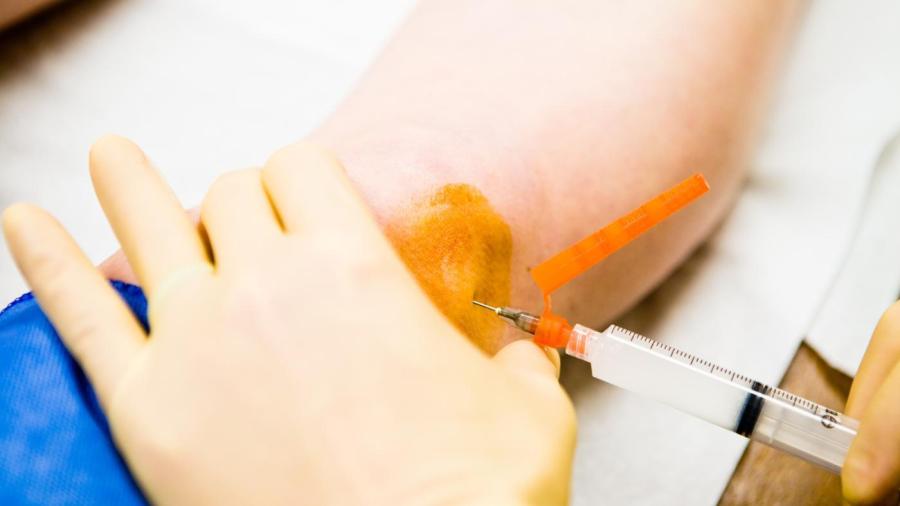Do Cortisone Injections Make You Gain Weight?

The National Institutes of Health lists weight gain and fluid retention as less serious side effects of cortisone injections. More serious side effects include muscle cramps, black stool, and an unexplained fever or sore throat. It suggests talking with a doctor if side effects, such as thinning skin and redness of the face, occur after an injection.
Cortisone, a hormone that is produced naturally in the body, is released in response to a stressful event, such as an injury. As a synthetic injection, cortisone helps to reduce pain and inflammation in certain areas of the body. According to the Mayo Clinic, doctors inject cortisone primarily in joints to relieve swelling and pain that is caused by arthritis, sciatica and other conditions.
Cortisone is also used as a treatment for many glandular and hormonal disorders. In addition, it helps with autoimmune disorders, asthma, lupus and skin disease. The Mayo Clinic further explains that because cortisone is a hormone, having injections for an extended time can lead to hormonal problems, such as mood swings. Excessive cortisone can also cause cataract development, an increased risk of infections and osteoporosis. Because of the risks of cortisone injections, doctors limit the amount of shots a person can have in a single year and monitor its affect on the patient.





